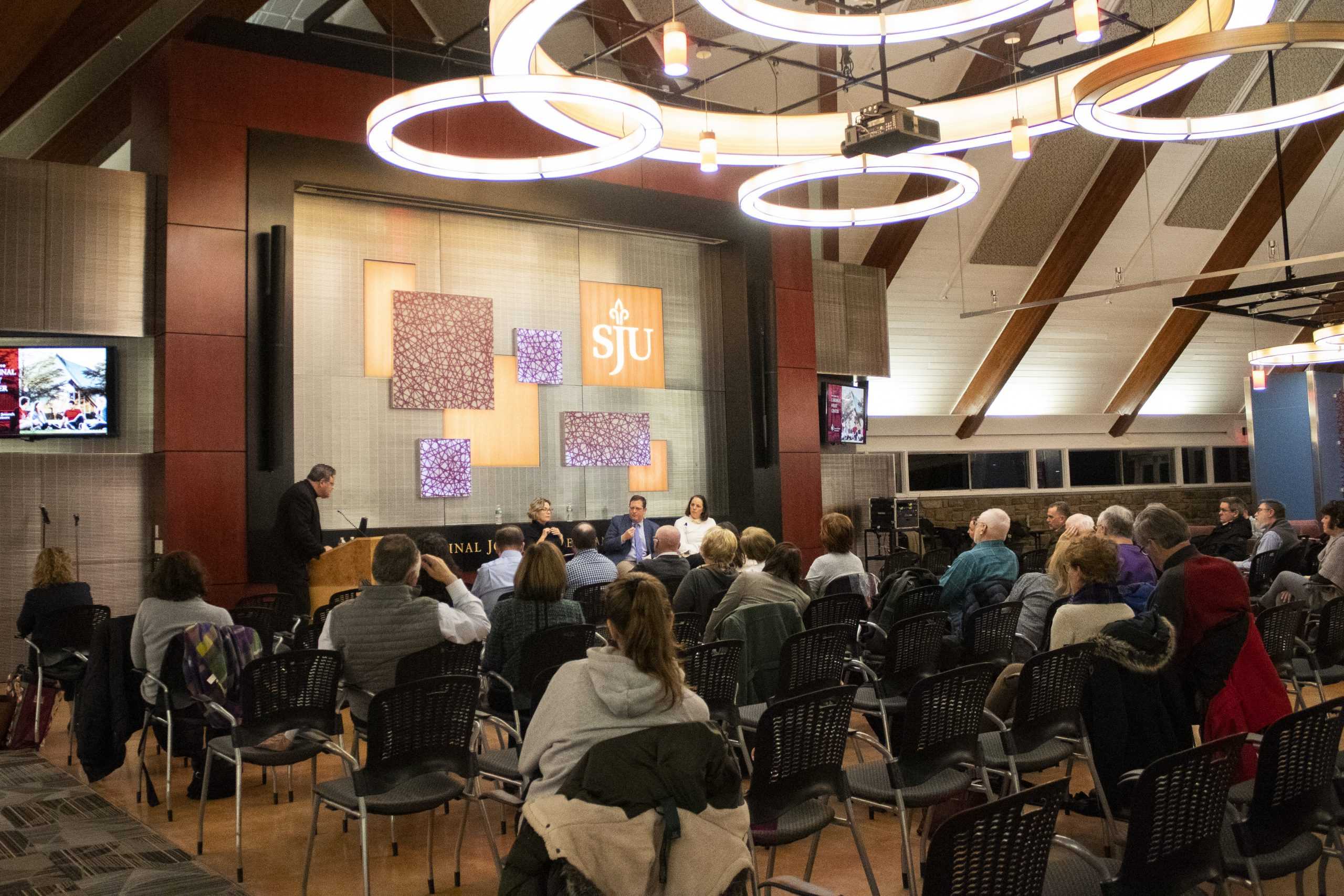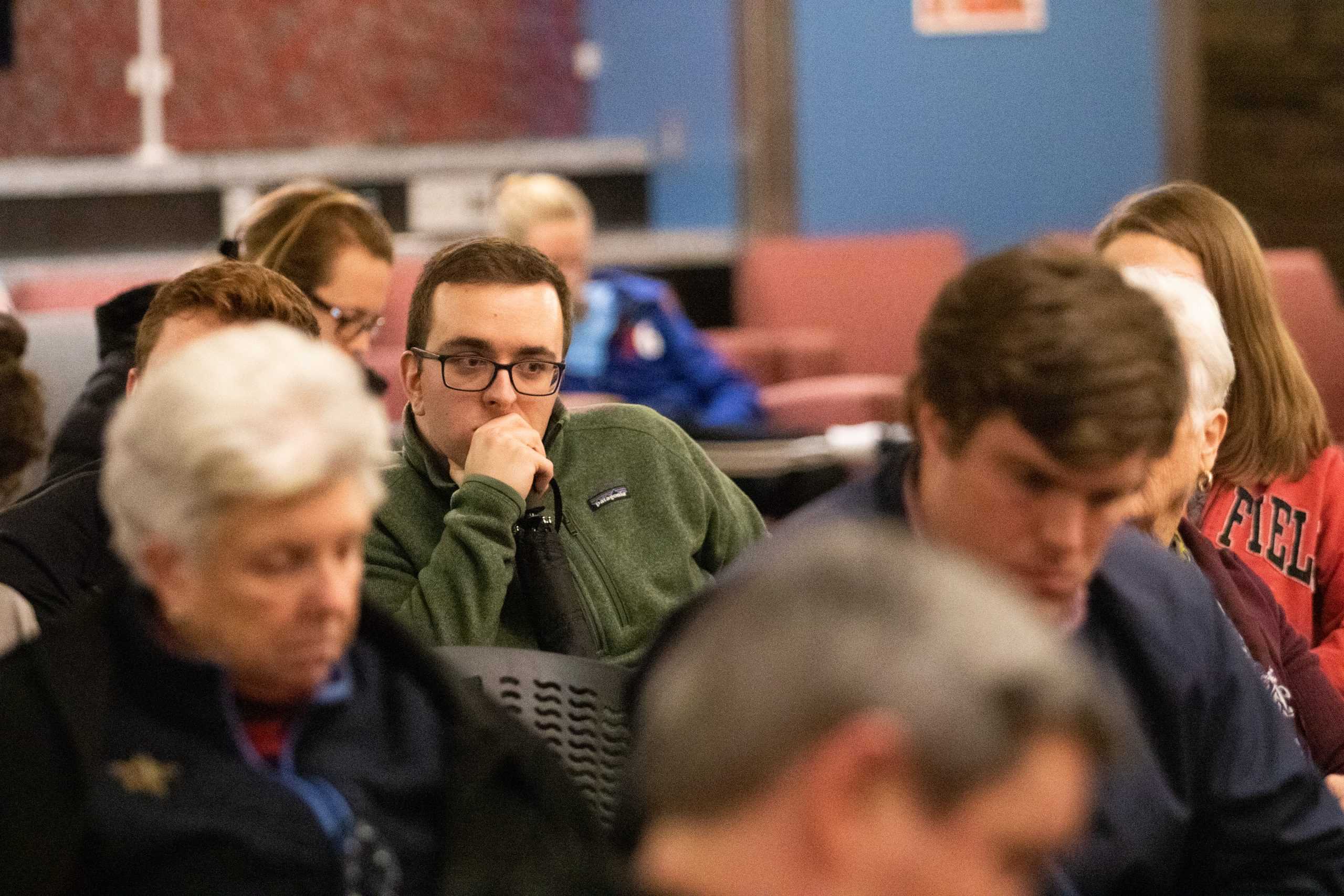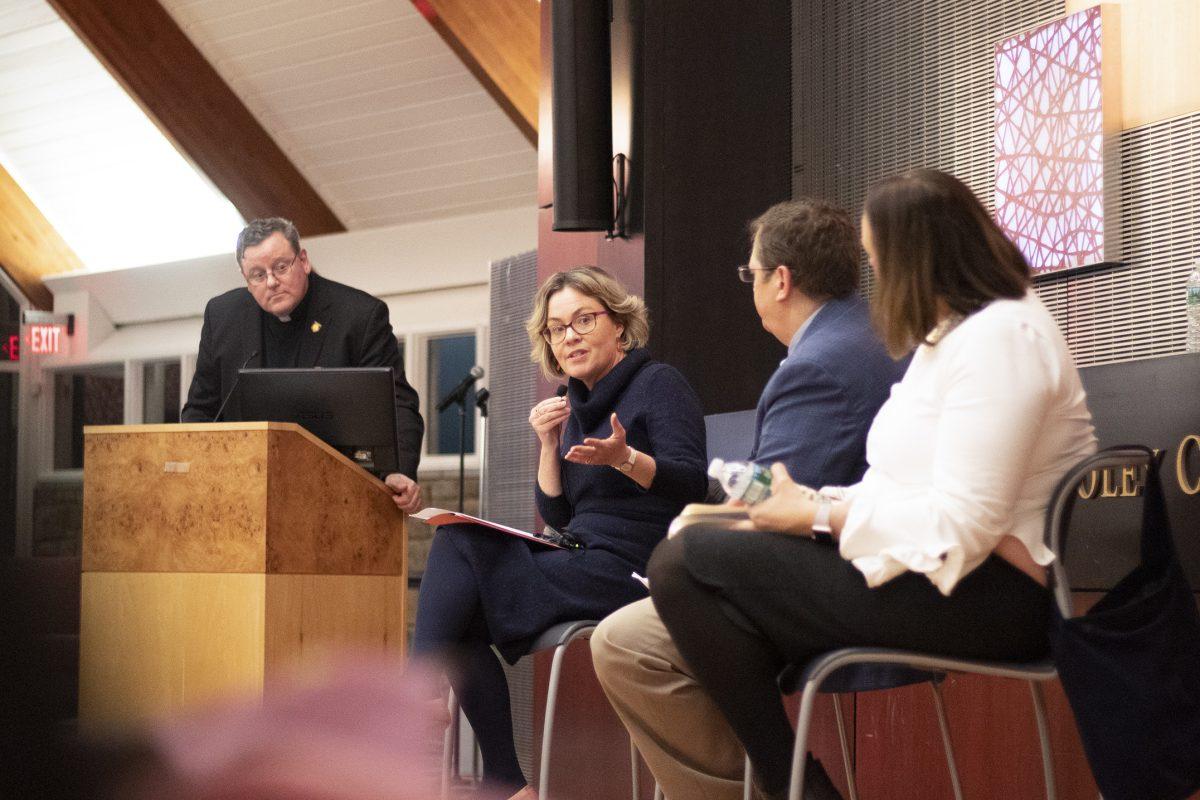Cara Smith ’21 co-wrote this story
A panel-style dialogue surrounding the 40th Grand Jury Report about sexual abuse in the Catholic Church was held on Feb. 6 in Cardinal John P. Foley Campus Center.
The discussion was sponsored by the Faith-Justice Institute’s Joseph William and Madeline Eberle Klein Fun, facilitated by Daniel Joyce, S.J., and attended mostly by community members rather than students and faculty affiliated with the university.

Kathleen Sprows Cummings, Ph. D., from the Cushwa Center for American Catholicism at the University of Notre Dame, served as one of three panelists. In an interview with The Hawk , Cummings called for a systematic change in the Catholic Church.
“The Vatican and the Catholic Church [are]institutions that measure change in centuries, and we’re not used to that here in America,” Cummings said. “We want change quickly and I think we have to find some kind of balance between those two things.”
Hank Hockeimer, a criminal defense lawyer, and Cara Tripodi, LCSW, a therapist specializing in sexual addiction also joined Cummings on the panel.
One of the topics Tripodi covered during her panel remarks concerned the difficulty Catholics have staying with the Church after the “betrayal” from clergy members.
“You reflect on the history of the relationship,” Tripodi said. “They forever have to factor this data in now and so it becomes an issue where you have to hold more than one reality at the same time.”

A common theme of the discussion was solutions not only to prevent this is the future, but to support victims.
Paul Ammons ’20 said he noticed that the church uses their ideology to promote systemic abuse.
“I have been privileged to have people that have shielded me from the abuse I could have received,” Ammons said. “I feel an obligation to speak up and to talk about [abuse] in ways that some of those who have experienced victimization just can’t.”

Tripodi also stressed the importance of supporting victims of sexual abuse.
“One of the greatest gifts I feel I can give at times is my presence and to listen to the pain,” Tripodi said.
At the end of the discussion, the floor was opened to contributions from the audience. Many of these questions and comments came from people personally affected by or involved with the Catholic Church sexual abuse in Philadelphia.
Charles Gallagher, a community member in the audience who challenged the room to pay more attention to victims and proposed multiple solutions to the problem, called the sexual abuse of children “soul murder.”
“There’s no statute of limitations on homicide,” Gallagher said. “There should be no statute of limitations for soul-murder.”

Cummings, addressing another common theme about what youth can do to engage in the dialogue, said in an interview with The Hawk that she has faith that the younger generation will initiate change within the Catholic Church.
“It has to be grassroots, from the bottom up,” Cummings said. “I think students are the ones who could hold the feet to the fire of the church and the university officials and say ‘Why aren’t we talking about this more?’”















































